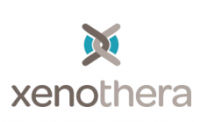预约演示
更新于:2025-05-07
QPS Netherlands BV
子公司|Netherlands
子公司|Netherlands
更新于:2025-05-07
概览
标签
免疫系统疾病
皮肤和肌肉骨骼疾病
单克隆抗体
关联
1
项与 QPS Netherlands BV 相关的药物13
项与 QPS Netherlands BV 相关的临床试验NCT05576012
A Randomized, Double-Blind, Placebo-Controlled, First-in-Human Phase I Study Evaluating Safety, Tolerability and Pharmacokinetics of Single Ascending Doses of SOL-116 in Healthy Subjects and Patients With Rheumatoid Arthritis
This is a randomized, double-blind, placebo-controlled, first-in-human phase I study. It consists of a single ascending dose part in healthy subjects (Part 1) and in patients with rheumatoid arthritis (Part 2) as well as a multiple dose part in healthy subjects (Part 3). The study will collect information on pharmacokinetics, safety and tolerability.
开始日期2022-10-13 |
申办/合作机构  Lipum AB Lipum AB [+1] |
NCT05307406
A First-in-Human Single Ascending Dose Study to Evaluate the Safety, Tolerability, Pharmacokinetic and Exploratory Markers of Efficacy for XAB05 in Healthy Subjects
This study is a randomized, placebo-controlled, first in human, single ascending dose Phase 1 study
开始日期2022-01-24 |
申办/合作机构  Xenothera SAS Xenothera SAS [+1] |
NL-OMON49143
Pharmacokinetic and pharmacodynamic profile of midazolam intranasal spray in elderly volunteers. - CS0314 Midazolam
开始日期2020-03-11 |
申办/合作机构 |
100 项与 QPS Netherlands BV 相关的临床结果
登录后查看更多信息
0 项与 QPS Netherlands BV 相关的专利(医药)
登录后查看更多信息
6
项与 QPS Netherlands BV 相关的文献(医药)2015-04-01·Bioanalysis4区 · 医学
Robust, Fit-For-Purpose Method Transfer: Why We Should Apply Equivalence Testing
4区 · 医学
Article
作者: Wieling, Jaap
2013-09-01·Bioanalysis4区 · 医学
In-Depth Study of Homogeneity in DBS Using Two Different Techniques: Results from The EBF DBS-Microsampling Consortium
4区 · 医学
Article
作者: de Vries, Ronald ; Schmid, Bernhard ; Staelens, Ludovicus ; van de Merbel, Nico ; Siethoff, Christoph ; Spooner, Neil ; Broadhurst, Rebecca ; Ortiz, Jordi ; Barfield, Matthew ; Doig, Mira ; Cobb, Zoe ; White, Steve ; van Baar, Ben ; Williams, Stephen ; Timmerman, Philip ; Verheij, Elwin
2011-01-01·Thrombosis and Haemostasis2区 · 医学
Phase I study of Solulin, a novel recombinant soluble human thrombomodulin analogue
2区 · 医学
Article
作者: Giesen, Peter ; Stroissnig, Heimo ; Wemer, Johan ; van Iersel, Thijs ; Wilhelm-Ogunbiyi, Karin
100 项与 QPS Netherlands BV 相关的药物交易
登录后查看更多信息
100 项与 QPS Netherlands BV 相关的转化医学
登录后查看更多信息
组织架构
使用我们的机构树数据加速您的研究。
登录
或

管线布局
2026年03月01日管线快照
管线布局中药物为当前组织机构及其子机构作为药物机构进行统计,早期临床1期并入临床1期,临床1/2期并入临床2期,临床2/3期并入临床3期
临床1期
1
登录后查看更多信息
药物交易
使用我们的药物交易数据加速您的研究。
登录
或

转化医学
使用我们的转化医学数据加速您的研究。
登录
或

营收
使用 Synapse 探索超过 36 万个组织的财务状况。
登录
或

科研基金(NIH)
访问超过 200 万项资助和基金信息,以提升您的研究之旅。
登录
或

投资
深入了解从初创企业到成熟企业的最新公司投资动态。
登录
或

融资
发掘融资趋势以验证和推进您的投资机会。
登录
或

生物医药百科问答
全新生物医药AI Agent 覆盖科研全链路,让突破性发现快人一步
立即开始免费试用!
智慧芽新药情报库是智慧芽专为生命科学人士构建的基于AI的创新药情报平台,助您全方位提升您的研发与决策效率。
立即开始数据试用!
智慧芽新药库数据也通过智慧芽数据服务平台,以API或者数据包形式对外开放,助您更加充分利用智慧芽新药情报信息。
生物序列数据库
生物药研发创新
免费使用
化学结构数据库
小分子化药研发创新
免费使用
